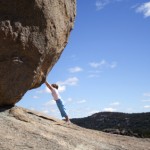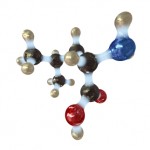I was reading a food and exercise article this morning in a Nutrition Action Healthletter, a publication from the Center for Science in the Public Interest, a group whose watchdog goals I often support. CSPI has been around for forty years and when I looked at its board member list I saw the familiar name of David A. Kessler, MD, JD, the former FDA head and ex-dean of two medical school.
The April 2011 article my wife showed me was titled "Staying Strong: How exercise and diet can help preserve your muscles." Well I'm two days shy of my 70th birthday and a gym rat, there six days a week. And I eat well or so I thought. What's there for me to learn from this article?
I agreed with the opening quote from Dr. Miriam Nelson, the director of Tuft's Center on Physical Activity, Nutrition and Obesity Prevention, "Muscle is the absolute centerpiece for being healthy, vital and independent as we grow older." Of course, having a functioning brain helps. But I wasn't about to quibble with a distinguished figure like Dr. Nelson, who is a Fellow of the American College of Sports Medicine, an Assocatiate Professor at Tufts and founder of the Strong Women program.
The Healthletter said most of us lose muscle mass starting in our late 30s and early 40s. I had certainly noticed that a few years back, in spite of being physically active. To reverse the process, or at least keep a decent amount of muscle, resistance training is advocated, I've been doing lower body exercise mostly (an hour+ on a recumbent bike), but recently added back some weight training for both upper and lower body. Ben Hurley, a PhD Exercise Physiologist at the University of Alabama, feels muscle power is the key to fall prevention, a critical factor in the elderly.
Even if you fall and break a bone, like the oldest member of my wife's Strong Women, Strong Bones class, did, your chances of having a rapid recovery are considerably increased. Her docs were amazed at how she bounced back. Strength training, in several studies, has been shown to increase bone density.
What else did I need to do? The new information in this Healthletter was of the amount of protein we need as we age. I read the article and added a hunk (~4 ounces) of leftover beef to my cereal, milk and fruit breakfast. That advice came from researchers at UT Galveston (and numerous other universities), especially a PhD Associate professor, Dr. Douglas Paddon-Jones, who's worked with NASA on usingartificial gravity and amino acids to preserve muscle mass in astronauts.
The bottom line was to eat more protein and to add some to your breakfasts and lunches as you age. One particular amino acid, leucine, appears to be most crucial. it's found in whey (in milk and cheese) and in fish, poultry, eggs and meat. I'll write more about timing of amino acid intake another time.



I accidentally threw away my copy of the April, 2011 Nutrition Action Health Letter with the article you referenced. I can't find it on line. I would like to know the name of the protein supplement rated the best at the end of the article. As a polio survivor with a severely underdeveloped leg, I have been told for years to take lots of protein, especially in the morning. I eat 1/2 cup of non-fat cottage cheese ( 80 calories, no fat, 12 grams of protein) with fruit. But I am thinking of adding a protein supplement to my diet and would like to know the name of the one recommended. Many thanks.
Carol, I found my April copy of the Nutrition Action Letter, but will have to go back to that blog post to see what protein supplement you meant.
What I do myself is to hard boil eggs, throw the yolks into our composite bin along with the shells as our composting worms love them, and eat the egg whites two or three times a day depending on what protein I'm getting (or not getting) at a given meal.